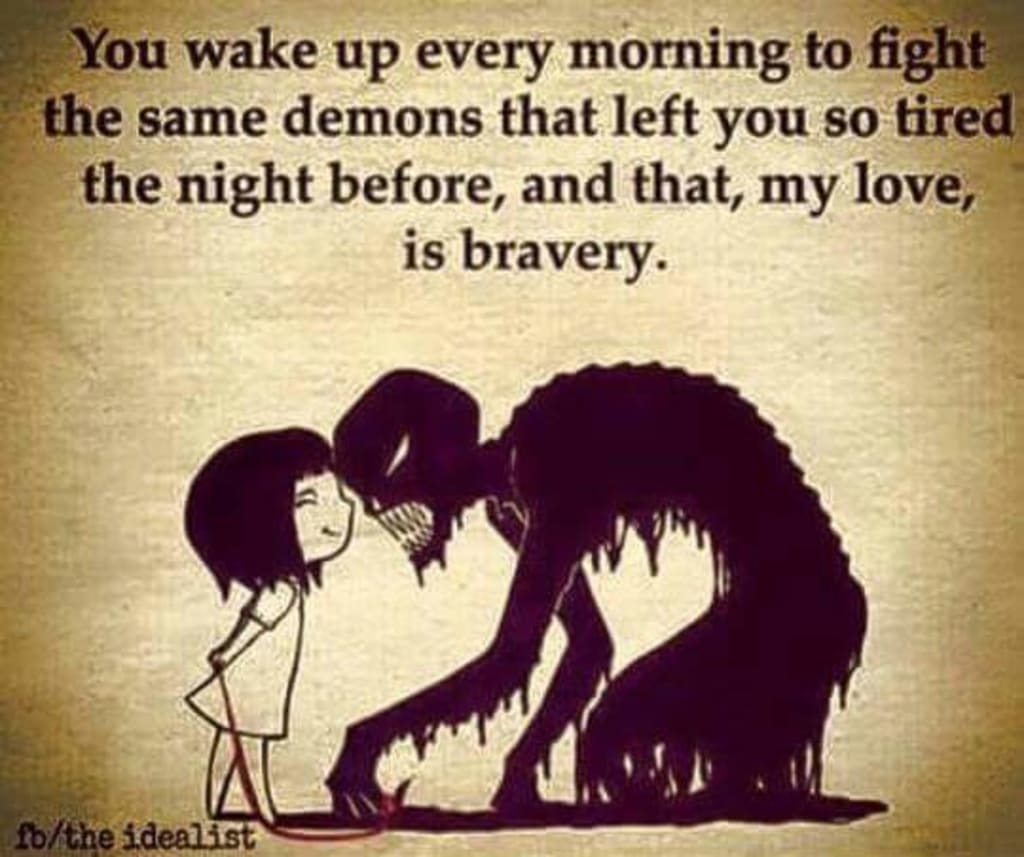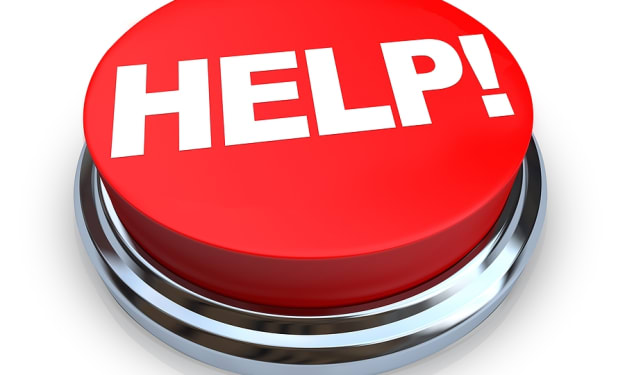
We grew up by heroin highway, or 290. I saw the stories on the news, but we were in a small suburb. It couldn't happen to anyone I knew. We had good lives, they weren't perfect, but they were good. I stood staring at his gray body, dark circles under his eyes, bluish-purple lips, bruises lined his arms and as they administer the naloxone, I can't help but think that he is dead. Not in the literal sense. His heart is beating again, but this is not the guy I grew up with. The person I knew died with the first injection. The first snort. The first toke.... to be honest, I'm not sure how it started. He wouldn't tell me that. He hid his other life from me, knowing that I wouldn't approve. He knew I had a background of bad experiences with people I've known making a handful of mistakes on harsh, addictive drugs. So he hid it from me, like so many of our other friends. I've watched as many of my best friends have made this transition; from best friend to complete stranger. Even worse, I've stood at funerals for this horrible disease. I stood at funerals before we were even out of high school. And now, here I stood, watching the man I was in love with wither away as the disease and the drugs took over. As I ran a hand over my protruding belly, I wondered how this was going to affect her. I wondered if he would even be around to meet her. I wondered if I should run, get as far away from this state as possible so that there was never even the possibility of me ever seeing my daughter fall to this fate. But that wouldn't help. Moving wouldn't solve anything. It was a nationwide problem at this point. I looked again at the stranger in front of me. This disease was killing him and in that moment I realized there was nothing I could do to stop it.
The fact is, we are in a medical crisis. The opioid epidemic is sweeping the nation. In American alone, the Center for Disease Control estimated that 64,070 people died from drug overdose in 2016. That's about 175 deaths from overdose per day. We cannot specify the number of deaths due to opioid overdoses to an exact but it has risen drastically. It's sad that it started with a legal drug to treat chronic pain. Big pharmaceutical companies persuaded doctors to prescribe drugs such as OxyContin and Percocet to treat chronic pain, even though the risks far outweighed the benefits. It provided short-term relief, yes. However, used long-term, they are highly addictive and bad for the body. These drugs are, in fact, still prescribed today, but with much more concern. It's crazy though, that doctors are allowed to write prescriptions for three months' worth of these drugs.
I have heard that OxyContin is heroin. This isn't a true statement. OxyContin is an opiate and is supposed to be used to treat chronic pain. It contains Oxycodone which is meant to mimic the effects of morphine to relieve pain. OxyContin also mimics the behavior of endorphins in the brain, which bind to opioid receptors to reduce pain and create a happy feeling. OxyContin binds the opioid receptors so that it changes the way the user experiences the pain, which is why different people have different reactions to the drug. However, the oxycodone in OxyContin is released slowly, over about a 12-hour period. When it is used properly, users will enjoy a steady stream of pain relief. Heroin works in almost the same way in that it mimics endorphins in the brain and binds to opioid cell receptors, blocking the transmission of pain signals, magnifying pain relief and producing a happy feeling or a high. Unlike OxyContin, however, heroin offers users an instant rush of pain relief and euphoric feeling. Heroin is actually made from morphine. Many OxyContin users have found that they can bypass the time-lapse if they crush up a tablet and snort it or chew it, giving them the same effects of heroin. Once a tolerance is built up to drugs such as OxyContin or they can no longer afford OxyContin, users will turn to cheaper ways to get the same euphoria such as heroin.
So what can we do about this? Many people believe we should ban doctors from prescribing drugs like this all together to help get them off the street. While doing that would help the prescription drug use go down it create a higher need for heroin. It's kind of a double-edged sword in that way. It would also be taking the drug away from patients who really need it. In my opinion, we should be limiting who gets prescribed drugs like these. They should not be completely written off because there are people who actually need them and do use them in their proper form. In fact, most opioid addicts who start off with prescription medication such as OxyContin aren't ever actually prescribed it. They are buying it either off of people who are or are stealing from people who were prescribed it. Actually, we should be looking more for mental awareness in young teens and young adults. There is a stronger link between childhood trauma and addiction than there is between obesity and diabetes. Two-thirds of addicts report being abused as children. If these people are actually just traumatized and looking for a way to silence that traumatization, and we can find a way to better detect it then we can cut it off before it becomes an addiction problem. This is not to say every addict was traumatized in their past, but it might help a good number of people. The war on drugs will never be over; there will always be addicts, there will always be drugs. Right now, we should be focusing on how to reduce the opiate problem in as many ways as we can.
Methadone clinics or opioid treatment programs are regulated by the Substance Abuse and Mental Health Services Administration and are allowed to give out the controlled substances methadone and buprenorphine, to treat opioid addiction. Methadone relieves cravings and blocks the high that heroin and other opioids provide, and prevents withdrawal. Buprenorphine aids to help prevent the systems of withdrawal. Clinics are allowed to give people methadone, usually only allowing them to take it in the clinic unless they've been enrolled in a long-term program and have shown progress. They are supposed to take the methadone daily in order for it to correctly work. Another medicated-assisted therapy is Vivitrol. Vivitrol blocks opioid receptors in the brain for one month at a time. A once month injection seems a lot better than a daily methadone therapy. However, without insurance, Vivitrol can cost around $1500 for one shot. Methadone therapy is a lot more popular for overcoming opioid addiction.
Watching someone you love suffer from this horrible disease is unlike anything I can describe. The horrible part is that there isn't a lot we can do for these people. Support is the main thing. Reaching out to them is hard because addiction changes people. When reaching out to someone who is addicted please keep in mind that it might not be in their same state of mind and might give you a response that isn't exactly what you would expect from them. But with people that are addicted and trying to get help, it's really important to have support; to have someone there who is making sure they are going to therapy and just generally there showing them that they believe in their recovery. Opioid addiction is a horrible crisis sweeping this nation. Chances are someone you know suffers from addiction. The best thing you can do is be there for them emotionally and encourage them to get help.
The story that I opened this article with was a personal story. Watching it take over my friend broke my heart and still does. It was the moment I truly became interested in what can be done in terms of this crisis. If you are truly interested in helping out your community with those suffering you do have options to help out. You can volunteer your time or money at clinics near you. Or if you would rather donate to an organization you can donate to organizations like Young People in Recovery, Heroes in Recovery, and Facing Addiction. Take prescribed opioids as rarely as possible and make sure you're disposing of them if they are not being used. And I cannot reiterate enough to simply be there for those going into recovery. Showing someone you believe in their recovery can go a long way.
About the Creator
Michelle Schultz
I'm mostly an editorial writer. I love to share my opinions and experiences. I don't hold back and I swear so if you take offense easily, my articles probably aren't for you. I'm a single mom just trying to stay sane.
@loreleismom






Comments
There are no comments for this story
Be the first to respond and start the conversation.